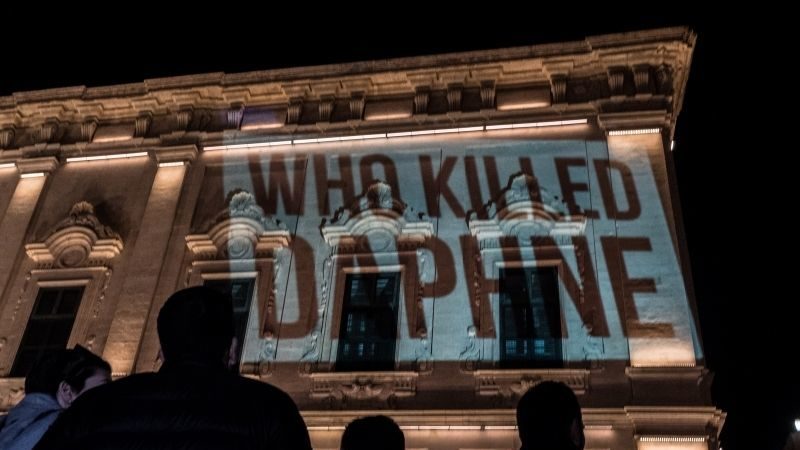The public inquiry looking into the assassination of journalist Daphne Caruana Galizia resumed briefly on Friday, where it announced that it welcomes submissions to be made from members of the public.
“We are handicapped in the way that is the first public inquiry there ever was,” said Chair of the Board Judge Emeritus Mallia, as the board discusses and navigates the way forward.
On 14 December, the board had suspended the hearings until 29 January for the presentation of notes and further information to be submitted, including data from Europol which could prove to be useful to the inquiry.
The Board then said taking the UK model of public inquiries into consideration “the Board welcomes the public, and whoever has the interest to present notes of observations, to be considered by the Board”.
The inquiry is the first of its kind in Malta, and has, throughout the past year, and through some 100 testimonies, provided insight into serious shortcomings in institutions and concerns about political involvement, among others. Despite this, Prime Minister Robert Abela still shows reluctance towards such inquiries – most recently refusing to open such an inquiry into the death of Miriam Pace, despite her family’s requests.
Civil society group Repubblika handed in their written submissions to the Board. “We came about as a result of the assassination of Daphne Caruana Galizia, so we thought it important to give in our submissions,” said the group’s president Robert Aquilina.
State Advocate Chris Soler then told the Board that he is not in a position to make a submission. He said that the government could only observe.“We have not been treated as a party,” he said.
In the decree read out in December, the Board, which had been pressured by the government to end the inquiry that month, reiterated the need to be left to continue its work “with serenity” in order to arrive at its judicial objectives without “improper pressure”.
“The research for truth should never be subjected to arbitrary and unilateral termination which could condition the conduct of who may be called to judge,” it had said.
In view of complaints that continuing the inquiry puts a burden on the public purse, the retired members of the board, including its chair, had even offered to relinquish their honorarium for the service rendered to the country.
As the inquiry closed off in December, Mallia had also read out a declaration written by the son of author Frans Sammut, in which he revealed to the Board that his father was asked by Muscat to contribute to a blog against Caruana Galizia and refused. The son, Mark Sammut, will be testifying on 8 February.
Public inquiry has been ‘exceptional’ – Repubblika
In its written submission to the Board, Repubblika said it believes the inquiry has been “exceptional when compared to the response of the State” to the killing of Caruana Galizia.
“It has asked difficult questions to witnesses and forced the only form of proper examination of the circumstances in which Daphne Caruana Galizia was assassinated and the causes of the crime, how it was allowed to happen and the failings of the State in dealing properly with the matter after the fact.”
The submissions address numerous factors, namely: “How (former Prime Minister) Joseph Muscat and people within his circle enjoyed and continue to enjoy impunity” and “lead a campaign to dehumanise Caruana Galizia”.
The group also listed failures of the State to mitigate the risks to Caruana Galizia’s life “including the effect on her isolation as a result of slander and vilification on political party media”.
“We argue that the assassination of Daphne Caruana Galizia should be seen in the context of mafia infiltration in the fabric of Malta’s governance and society which we content is dangerously underestimated,” the NGO said.
The submissions also include an argument by the group as to why public inquiries are significant for democracies and why, till today “the State continues to fail to provide adequate protection to journalists and other agents of civil society”.
They said that although the group was founded as a result of the anger and dissatisfaction felt following the assassination, their “concerns today are more profound than they were” on 16 October 2017.














Poor Daphne. She didn’t really have a clue of exactly how VILE the Maltese mafia really is.
Much, much worse than how she depicted them in Running Commentary.
And the archfiends still have the nerve to suggest that what she wrote was vile.